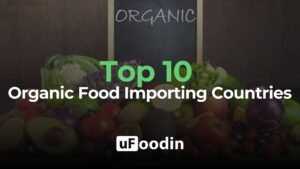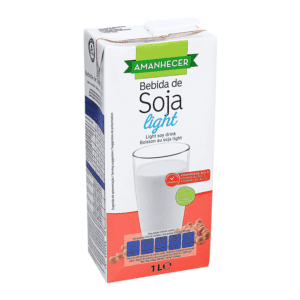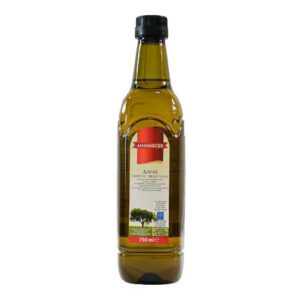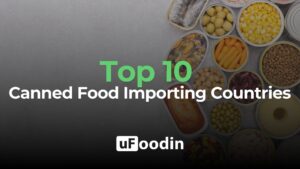
How to Find B2B Buyers and Importers in the Food Industry
The food industry is one of the largest and most dynamic sectors globally, driven by increasing demand for unique products, sustainable sourcing, and international trade. For businesses in this industry, connecting with the right B2B buyers and importers is essential to expanding market reach and achieving growth.
Platforms like uFoodin Marketplace are revolutionizing how producers and buyers connect, providing year-round solutions to enhance visibility, build partnerships, and streamline transactions.
This article outlines actionable strategies for identifying and securing relationships with buyers and importers in the food industry while showcasing how uFoodin’s digital tools and events can empower businesses in their growth journey.
Why Finding the Right B2B Buyers Matters
Securing reliable and strategic B2B buyers is critical for food producers aiming to expand their market presence and achieve sustainable growth. The right partnerships can create a foundation for long-term success, providing access to new opportunities and boosting overall competitiveness. Here’s why finding the right B2B buyers is essential:
1. Market Expansion
For food producers, entering new markets can be challenging without strong partnerships. B2B buyers, such as distributors, importers, and wholesalers, act as a bridge to untapped regions and demographics. By connecting with these key players, producers can:
- Gain access to markets with high demand for their products.
- Leverage local buyer expertise to navigate regulatory requirements and cultural preferences.
- Build a distribution network without heavy investment in on-ground infrastructure.
2. Scalability and Revenue Growth
B2B partnerships often involve bulk purchasing agreements, providing a stable revenue stream and opportunities to scale production. This is particularly critical in the food industry, where economies of scale can significantly reduce costs and increase profit margins.
- Bulk orders allow producers to optimize supply chains and production schedules.
- Repeat orders from established buyers create predictability and financial security.
- Partnerships with global buyers help producers establish themselves as key players in international trade.
3. Brand Credibility and Trust
Collaborating with reputable buyers and importers enhances a company’s credibility. Buyers who are already trusted in their local markets can act as ambassadors for a producer’s brand, helping to:
- Build consumer trust in new regions.
- Establish a reputation for reliability and quality through association with respected buyers.
- Showcase the brand in prominent retail locations, increasing visibility.
4. Strategic Partnerships Beyond Sales
B2B buyers often provide more than just purchasing power—they can offer insights into market trends, consumer behavior, and competitive landscapes. Strategic partnerships with buyers help producers:
- Align their product offerings with local consumer preferences.
- Gain valuable feedback for product improvement and innovation.
- Co-develop marketing strategies for better market penetration.
5. Mitigating Risks and Challenges
The food industry is highly dynamic, with fluctuating demand, regulatory changes, and logistical challenges. A strong relationship with buyers can mitigate these risks:
- Buyers can help producers navigate complex import/export regulations.
- Established partnerships reduce the risk of reliance on spot-market sales.
- Collaborations ensure a steady demand for products, even during market downturns.
6. Access to Niche Markets
Finding the right buyers enables producers to access niche markets that might otherwise be difficult to penetrate. These markets often demand specialized products, such as organic foods, gluten-free items, or culturally specific ingredients.
Strategies to Find B2B Buyers and Importers
1. Leverage Digital Marketplaces Like uFoodin
Online platforms like uFoodin Marketplace provide a centralized hub where food producers and buyers connect seamlessly. With features like detailed product listings, buyer matchmaking, and secure trade service payments, these platforms simplify the process of finding and working with importers.
Why uFoodin Stands Out:
- Global Reach: Access verified buyers from over 210 countries, ensuring exposure to diverse markets.
- Secure Transactions: Secure Trade Service systems build trust by protecting both parties during negotiations and transactions.
- Continuous Visibility: Unlike trade shows, uFoodin ensures year-round visibility for your products.
Tips for Success:
- Create a professional profile showcasing your certifications, sustainability practices, and product range.
- Use platform tools to engage directly with buyers interested in your category of products.
- Leverage analytics to understand buyer preferences and adjust your offerings accordingly.

2. Optimize Your Digital Presence
A strong online presence ensures you’re discoverable by buyers searching for suppliers. Complementing platforms like uFoodin Marketplace, maintaining a professional website, and engaging on social media can help attract importers.
Key Elements:
- Website: Include detailed product catalogs, certifications, and testimonials.
- Social Media: Use LinkedIn to network with industry professionals and share product updates.
- SEO Optimization: Use keywords like “organic food exporter” to improve search rankings.
3. Utilize Import/Export Databases
Tools like Trade Map, Kompass, and Panjiva provide detailed data on importers worldwide. These resources are particularly useful for identifying potential buyers in specific regions or industries.
How to Use These Tools Effectively:
- Search for importers already sourcing similar products.
- Analyze trade flows to identify high-demand markets.
- Use the insights to approach buyers with a personalized value proposition.
4. Engage in Industry Forums and Networking Events
Join food industry forums, webinars, and online communities like those hosted by uFoodin. Networking through these channels can help build credibility, share insights, and connect with potential buyers.
How uFoodin Helps:
uFoodin’s ecosystem includes webinars and forums where buyers and suppliers interact, providing a platform to showcase expertise and discuss industry trends.
5. Focus on Sustainability
The rising demand for sustainable and ethical products has created a unique opportunity for food producers. Highlighting sustainability credentials—like organic certifications or eco-friendly packaging—can attract buyers prioritizing these values.
Example:
uFoodin Marketplace features dedicated categories for sustainable suppliers, making it easier for eco-conscious buyers to find relevant producers.
The Role of uFoodin in Connecting Buyers and Sellers
uFoodin bridges the gap between traditional networking and modern technology, providing a seamless experience for food producers to connect with buyers:
uFoodin Marketplace: Year-round visibility, secure transactions, and tailored matchmaking with buyers.
Emerging Trends in the B2B Food Industry
- Globalization of Supply Chains: Importers increasingly seek products from diverse regions to meet changing consumer demands.
- Digital Transformation: Platforms like uFoodin are accelerating the shift to digital-first sourcing strategies.
- Focus on Health and Sustainability: Buyers prioritize organic, plant-based, and minimally processed foods.
Finding B2B buyers and importers in the food industry requires a blend of traditional methods and modern technology. Platforms like uFoodin Marketplace provide comprehensive solutions to help producers reach global markets, maintain visibility, and build lasting partnerships.
By leveraging these tools, optimizing digital presence, and engaging in industry events, food producers can unlock new opportunities, expand their networks, and thrive in the ever-evolving global marketplace.
uFoodin Editorial Team
Bibliography
- uFoodin Marketplace
- International Trade Centre – Trade Map
- Panjiva
- Global Sources
- Fortune Business Insights























